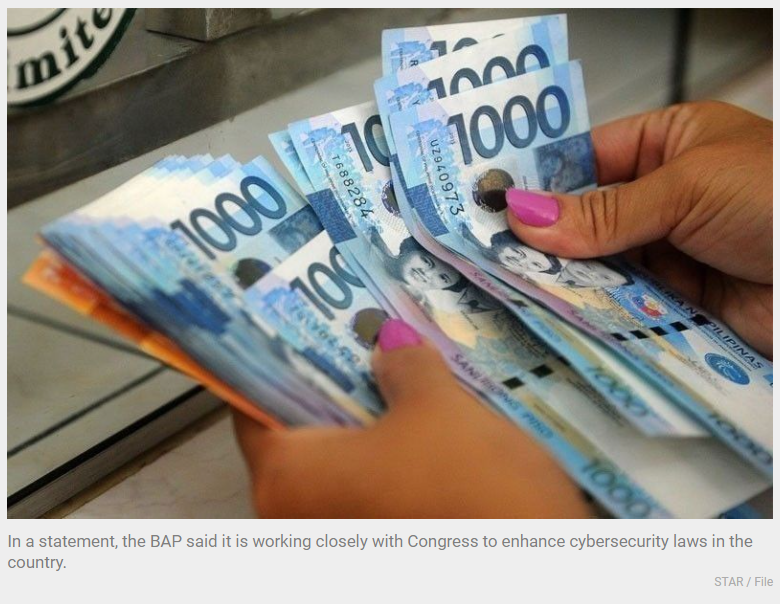Philippines: Banks step up fight vs money mules
MANILA, Philippines — Banks are ramping up their campaign against the rising number of pass-through or money mule accounts, according to the Bankers Association of the Philippines (BAP).
In a statement, the BAP said it is working closely with Congress to enhance cybersecurity laws in the country.
The group is pushing for the passage of House Bill 9615, or the Bank Account and E-Wallet Regulation Act, so that cybercriminals will be held accountable for their actions.
This bill proposes imprisonment and fines for people found guilty of committing phishing, economic sabotage, and serving as a money mule.
A money mule is someone who, either intentionally or unintentionally, uses his or her bank account to transfer money on behalf of someone else, usually a cybercriminal. The fraudsters use these bank accounts for crimes such as money laundering or for transferring money stolen from victims.
This is prohibited under Republic Act 9160 or the Anti-Money Laundering Act (AMLA) of 2001.
Usually, cybercriminals approach their targets by offering financial incentives in exchange for lending their bank accounts for the purpose of transferring money to another entity.
However, once a bank account is borrowed for this purpose, a money mule would end up as a victim as well as an unwilling and unwitting accomplice to the crime.
“We call on all stakeholders to work together to stop this criminal act from proliferating. Our collective efforts at protecting our wealth are the key to safeguarding our future,” the BAP said.
For one, Gotianun-owned East West Banking Corp. earlier warned clients not to accept money from people they don’t know or face the consequences including a hefty fine and a jail term.
“When someone offers to pay you a commission to simply transfer or deposit money into your bank account, you could be unwittingly acting as a money mule,” EastWest Bank said in a letter to clients.
The bank said violators could get up to seven years of jail time and a fine of up to P3 million.
“To be safe, don’t accept money from people you don’t know,” EastWest added.
Likewise, Ayala-led Bank of the Philippine Islands (BPI) reminded its clients and the public to be extra careful and never share their bank account details, as the bank noted an industry-wide increase in cases of money mule.
BPI chief digital officer Noel Santiago said mule accounts have become more prevalent in the last two years as criminals found an opportunity to take advantage of the rapid digital adoption in the country amid the pandemic.
“They are usually used as conduits by criminals so that they can launder big sum of money acquired from crimes like online scams, human trafficking, drug trafficking, among others,” he said.
Based on the COVID-19 financial crime analysis of the Anti-Money Laundering Council (AMLC), more than 13,000 transactions were flagged as suspected pass-through or money mule accounts with a total estimated value of P197 million during the height of the enhanced community quarantine in January and April 2020.
Source: https://www.philstar.com/business/2022/01/21/2155260/banks-step-fight-vs-money-mules


 English
English




